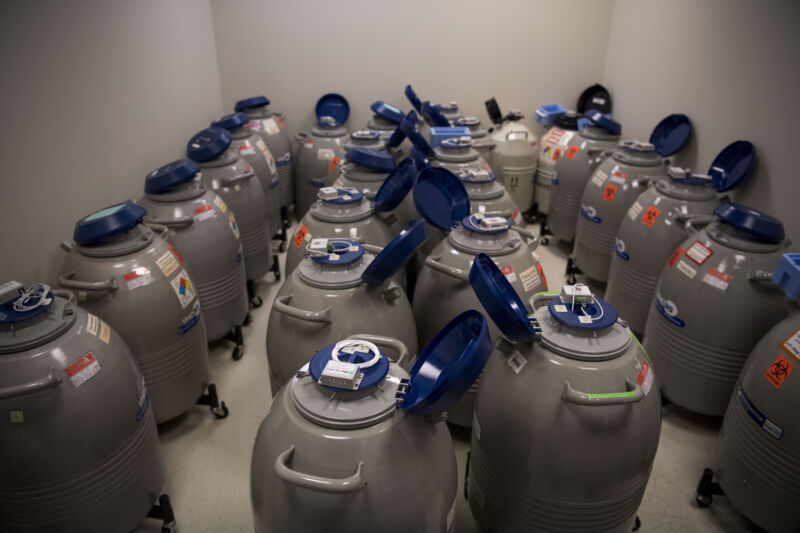
The University of Alabama at Birmingham (UAB) health system is halting in vitro fertilization treatment in the wake of a ruling by the state's Supreme Court on Friday that deemed frozen embryos to be "children," The ruling opens up anyone who destroys embryos to liability in a wrongful death lawsuit, according to multiple media reports.
The announcement—the first facility to report halting IVF services—is the much-feared outcome of Friday's ruling, which was widely decried by reproductive health advocates.
"We are saddened that this will impact our patients' attempt to have a baby through IVF, but we must evaluate the potential that our patients and our physicians could be prosecuted criminally or face punitive damages for following the standard of care for IVF treatments," UAB said a statement to media. The statement noted that egg retrieval would continue but that egg fertilization and embryo development are now paused.
Ars has reached out to UAB for further comment and will update this story with any additional information.
Production of extra embryos is a normal part of IVF treatment for several reasons. Most notably, not all embryos will be viable, implant in a uterus, and lead to a live birth. So, creating as many embryos as possible is a common strategy to ensure that people who wish to conceive have the best chance of doing so. Embryos can also be screened for genetic conditions, allowing only the healthiest to be implanted, while those with debilitating or fatal abnormalities can be discarded.
AdvertisementIn 2021, approximately 238,126 patients in the US had 413,776 rounds of IVF, resulting in 97,128 live-born infants, according to the Centers for Disease Control and Prevention. The percentage of egg retrievals that lead to a live birth ranges from 54 percent to 9 percent, depending on a patient's age.
But, the standard practices of IVF used for hundreds of thousands of patients each year were thrown into question and upheaval Friday when the Alabama Supreme Court ruled that all embryos, even those outside of a uterus or frozen in storage, are "children" under state law. Anyone who destroys them is liable under the state's Wrongful Death of a Minor Act, the court concluded. Chief Justice Tom Parker cited his religious beliefs and quoted the Bible to support the stance.
Reproductive health experts quickly speculated that the ruling would roll back IVF treatment in the state. Some facilities, such as the case of UAB, may halt treatment entirely. While others may choose to fertilize eggs conservatively, adding cost and time to the already arduous process of IVF. Genetic screening of embryos from couples who carry debilitating or fatal mutations may no longer be possible. Doctors could be sued if an embryonic ball of a few cells does not survive the treatment. Insurance rates for fertility clinics could skyrocket. Patients, meanwhile, may have to keep unneeded embryos frozen indefinitely.
On Tuesday, The Washington Post reported that the ruling had created a wave of anger, shock, and confusion across the state. Patients are considering moving frozen embryos—some leftover from IVF rounds, some purposely banked for future use—to storage facilities out of the state. Lawyers cautioned that divorce settlements that stipulate frozen embryos must be destroyed may now be void.
But the fear and confusion don't end there. Health advocates worry more states will follow Alabama's lead. And, if small clumps of cells gain personhood rights in more states, liability could spread to contraceptive use and people who suffer a miscarriage.



















